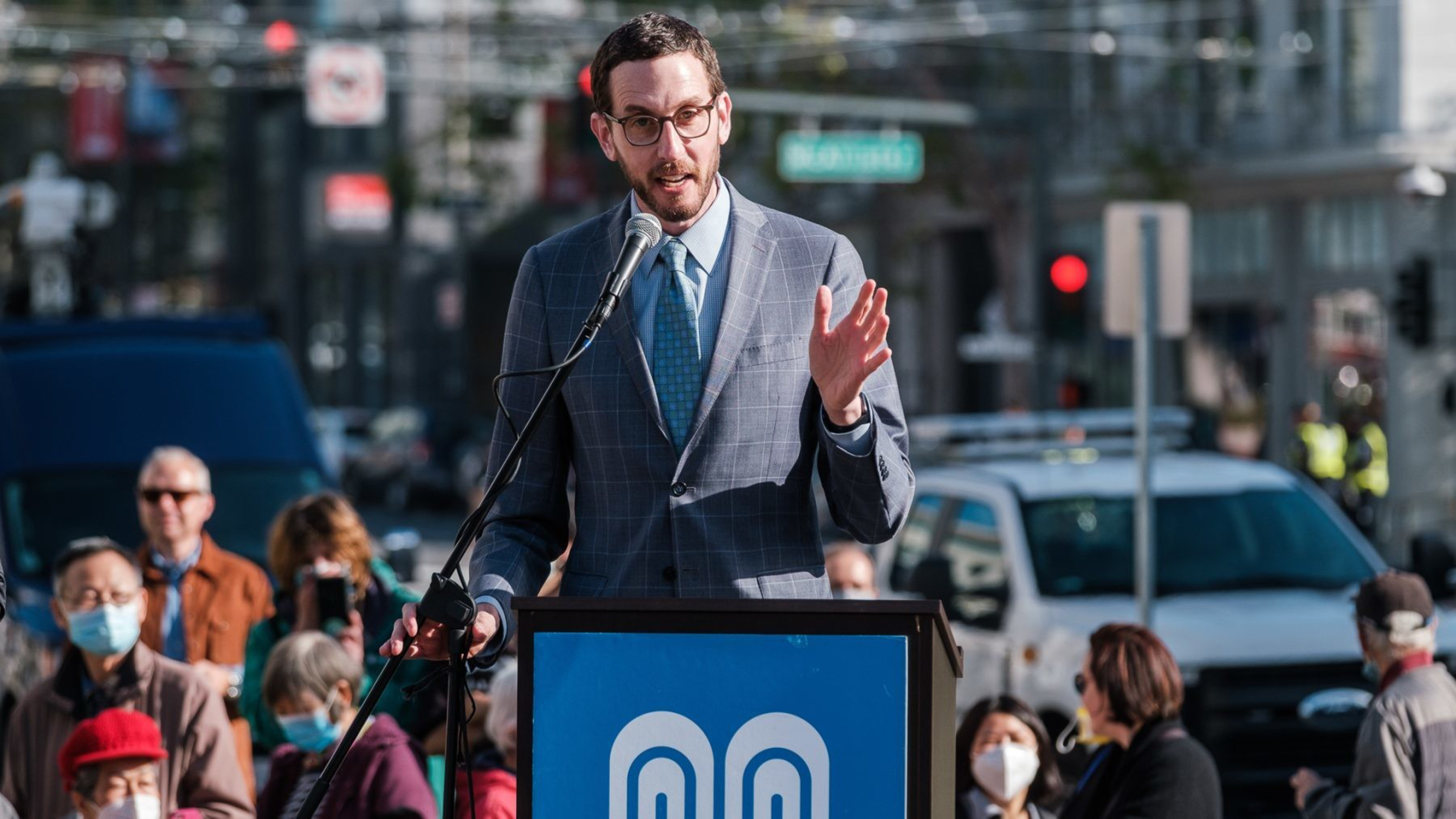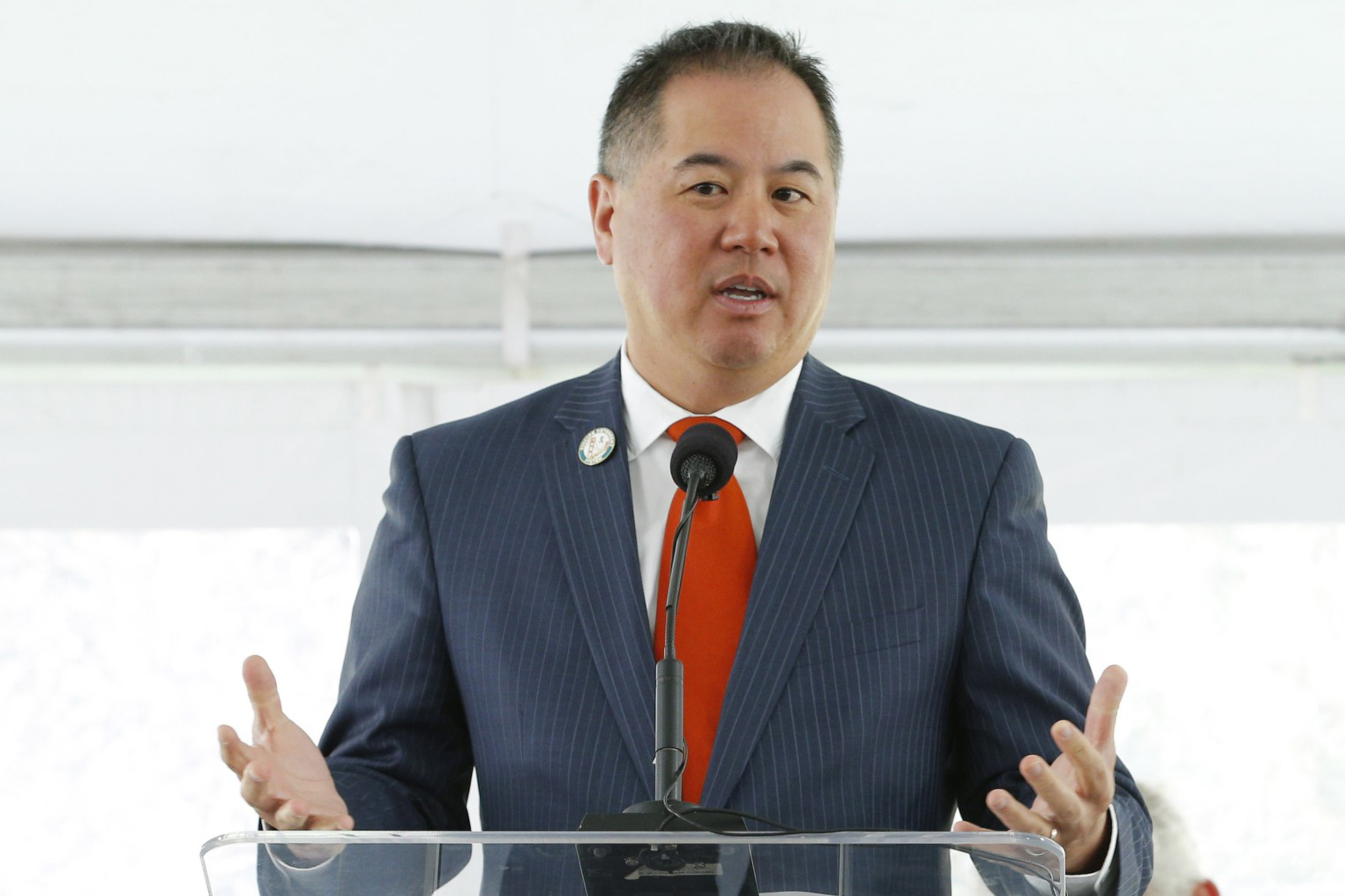San Francisco elected officials and transit advocates are turning up the heat on Assembly Budget Chair Phil Ting as the deadline to pass the state budget quickly approaches. Meanwhile, the west side assemblymember is pushing back.
Mayor London Breed, state Sen. Scott Wiener and transportation advocates are lobbying Ting to boost transit funding in the upcoming state budget, warning of devastating cuts as Bay Area agencies approach “fiscal cliffs” caused by a steep drop in ridership.
Newly released state Senate and Assembly budget drafts still leave out billions in operational funds that advocates say are needed to avoid drastic service reductions.
In a May 24 letter to Ting, Breed urged the Assembly “to provide a revised budget that keeps Bay Area transit agencies running while ridership rebounds from the pandemic and to avoid massive service cuts.”
“Supporting transit operations in this budget determines whether our downtowns thrive or die, whether our economy is strangled or supported, whether our outer neighborhoods are isolated or integrated into the region’s labor market and culture, and whether some of those San Franciscans who are struggling most can go about their daily lives,” Breed wrote.
The Senate and Assembly draft budgets restore $2 billion in capital spending that Gov. Newsom cut in his proposed budget. But most of those restored dollars are from a fund that allots money to the municipalities by population.

That’s concerning to those pushing for Bay Area transit funds. While the Bay Area is entitled to around 20% of those funds, the region makes up 50% of the operations deficit statewide, said Cyrus Hall, a data engineer who works with the San Francisco Transit Riders.
“We reestablished effectively this $2 billion in the budget for capital, and that’s great,” Hall told The Standard. “But that basically brings us back to where we started before the governor released his budget with a huge operational deficit.”
Wiener kicked off the renewed lobbying efforts with a tweet thread Wednesday.
Breed’s letter referenced alternative funding plans—proposed by Wiener and a statewide “Survive and Thrive Coalition” that includes the California Transit Association, the Bay Area Council and others—that would make use of federal highway funds that have yet to be allotted, as well as cap-and-trade auction funds, to resolve the remaining deficit.
The San Francisco Board of Supervisors is set to join Breed in the appeal for state funds.
Supervisors Matt Dorsey and Hillary Ronen introduced a resolution Tuesday urging Newsom and the Legislature to distribute operations funding “in a way that would both not disadvantage San Francisco’s transit agencies and that would be based on a formula that would avoid service cuts that would most impact transit dependent riders.”
“For a city like San Francisco, residential population is always an invalid denominator,” Dorsey told The Standard. “We have a population that commutes here; in 2019, we had 26 and a half million visitors. That’s roughly the population of Texas coming to visit. All of that needs to be served by transit and police services.”
The board will likely adopt the resolution at their June 6 meeting.
A number of pro-transit lobby groups, including Kid Safe SF, are also organizing members of the public to call Ting’s office via a web page set up Wednesday (opens in new tab).
“We need Assemblymember Ting to prioritize public transportation funding in the budget to ensure we can move our city and region forward towards a sustainable future,” Luke Bornheimer, a transportation advocate, told The Standard. “It’s long past time for Assemblymember Ting to join Sen. Wiener in prioritizing public transportation funding.”
Ting has been ducking calls on the issue, according to sources. Late Wednesday, his office sent out a mass email to constituents appearing to push back on the issue.
“I support helping out Muni, BART, SamTrans and others, but I don’t want to hand over a blank check without major improvements, greater accountability and a plan towards fiscal stability,” said Ting in the email to constituents. “Too many people have told me they don’t want to ride transit because they don’t feel safe or seats are not clean.”
Ting elaborated further in an email to The Standard Thursday, saying that Bay Area transit use was already declining pre-pandemic due to “safety and cleanliness concerns” along with a lack of reliability and convenience.
“Let me be clear, I will do everything I can to keep our Bay Area transit agencies moving, but we can both walk and chew gum at the same time,” Ting wrote. “Rather than just fund the same thing and expect different outcomes, it is time for our 27 Bay Area transit systems to put riders first: provide specific plans to bring riders back by creating seamless systems and making travel on public transit safe, affordable and predictable.”
Ting’s statement also urged Bay Area governments to rely on a regional transit funding measure that the Metropolitan Transportation Commission currently has planned for 2026. Wiener has lobbied to place it on an earlier ballot, asserting that 2026 is too late to save the agencies.
Without bridge funding, advocates say the fiscal cliff facing the region’s transit systems will go down a “death spiral,” where service cuts further depress ridership and revenue in a cycle of diminishing returns.
San Francisco Municipal Transportation Agency Director Jeffrey Tumlin has said that without enough state funding, the Muni bus system may have to cut 20 lines as early as this summer.
